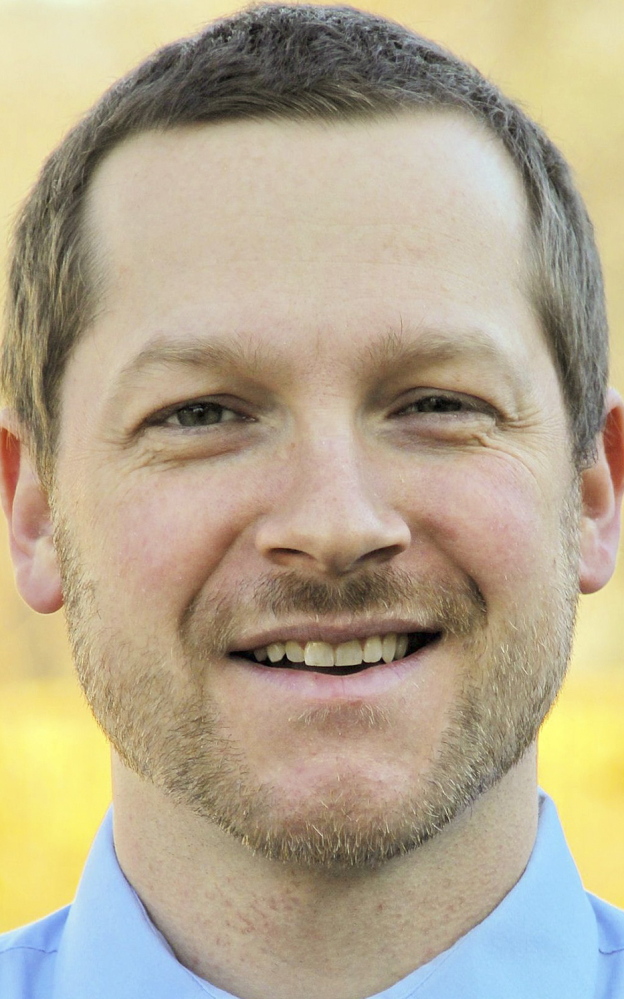A state lawmaker is proposing an ethics bill that would substantially curtail gifts, free food, and speaking and consulting payments from drug companies to Maine physicians.
Rep. Scott Hamann, D-South Portland, said he got the idea for the bill from a Dec. 25 story in the Press Herald/Maine Sunday Telegram that detailed the increased spending by pharmaceutical companies to promote opioids in Maine despite the ongoing attempts by the medical community to persuade doctors to cut back on prescribing opioids. Maine is in the midst of an opioid crisis, with about one death per day caused by drug overdoses, according to state data.
Four out of five new heroin users were first addicted to prescription opioids, according to the American Society of Addiction Medicine.
Last year, Maine approved a strict new prescribing bill that caps the dosage and length of time that opioids can be prescribed, a law that is going into effect this year.
Spending by drug companies to benefit doctors – including free food, consulting and speaking fees – as a method for marketing opioids doubled from $21,654 in 2014 to $42,550 in 2015, the latest year for which data is available. There is “insufficient evidence” that opioids are effective at controlling chronic pain, according to the U.S. Centers for Disease Control and Prevention, and the drugs present many dangers to patients.
For all drugs and medical devices, pharmaceutical industry spending in Maine on doctors totaled $11.9 million from 2013 to 2015, according to federal data made public through the Affordable Care Act.
Medical ethics experts say such payments from drug companies to doctors can influence prescribing patterns, and that listening to sales pitches from company representatives has no legitimate educational value for physicians. In addition, the payments create conflicts of interest for doctors, experts say, because physicians should only have their patients’ best interests in mind when prescribing drugs, and not be influenced to prescribe certain drugs because they are receiving gifts from the pharmaceutical industry.
“We want to make it so that when people go to the doctor they can be confident knowing that their doctor is also not receiving thousands of dollars in gifts from pharmaceutical companies,” Hamann said.
He said the language of the bill is currently being drafted, but he intends to model it on ethics legislation in Minnesota.
Under Minnesota law, which has been in effect since 2005, it is illegal for doctors to receive more than $50 in gifts – including food – per year, and consulting and speaking fees must be “reasonable” and for “bona fide” educational purposes. Minnesota has one of the strictest laws in the nation regulating such gifts, according to media reports.
Dr. Noah Nesin, vice president of medical affairs at Penobscot Community Health Care in Bangor, said the research is clear that the giveaways influence what doctors prescribe and that there is no professional value to the physicians in hearing from the sales representatives.
Drug company representatives are not permitted in the door at Penobscot Community Health Care, and some health organizations – such as Maine Medical Center in Portland, Eastern Maine Medical Center in Bangor and MaineGeneral Medical Center in Augusta – have strict policies limiting or banning such sales representatives from doctor’s offices.
For instance, at Maine Med-affiliated practices – according to the hospital’s policy – all gifts and food are banned, and doctors are prohibited from receiving any speaking or consulting fees from drug companies.
Nesin said speaking and consulting fees are of dubious value – it’s often merely an avenue for drug companies to pay doctors to persuade them to prescribe the pharmaceutical company’s products.
“I would be in favor of a law that sets these standards for physicians,” Nesin said. “It would set an ethical standard in the law and set up clear expectations.”
Gordon Smith, executive vice president of the Maine Medical Association, which represents doctors before the Legislature, said he is “conflicted” about the idea and would need to see the details of the bill before taking a position.
Smith said accepting more than a “modest” gift is against the medical association’s code of ethics. He said if all doctors followed the guidelines spelled out in the ethics code, this wouldn’t be an issue.
“The problem is that some people, when you give them an inch, are really pushing the envelope,” Smith said.
He said the central question is whether there’s a need for a law to make such practices illegal, or whether current policies and guidelines are sufficient.
In Minnesota, the ethics laws are not controversial among physicians, and now there is little interaction between doctors and the drug industry, said Dan Hauser, a spokesman for the Minnesota Medical Association.
“It is standard operating practice now for physicians in the state to set up a wall between themselves and the pharmaceutical industry,” Hauser said.
One Maine physician – Dr. Douglas Jorgensen of Manchester, a pain specialist – received $42,522 from August 2013 through December 2015 from drug companies regarding opioids, the data show. Jorgensen was criticized by Nesin and Dr. Stephen Hull of Mercy Hospital for receiving the payments, saying they represented a conflict.
Jorgensen, in a letter to the Portland Press Herald four days after the story was published, defended the drug company payments. Jorgensen had not responded to repeated requests for comment before the Dec. 25 article was published.
“My utilization of pharmaceutical companies for information … is no different than a computer software developer interacting with Microsoft or an oncologist seeking updates on chemotherapy from a pharmaceutical company,” Jorgensen wrote. “Medical experts, like non-medical experts, always seek competent and reliable sources of knowledge and information.”
Jorgensen wrote that “there is nothing malevolent or inherently unethical from seeking state-of-the-art information from pharmaceutical manufacturers.”
Joe Lawlor can be contacted at 791-6376 or at:
jlawlor@pressherald.com
Twitter: joelawlorph
Send questions/comments to the editors.



